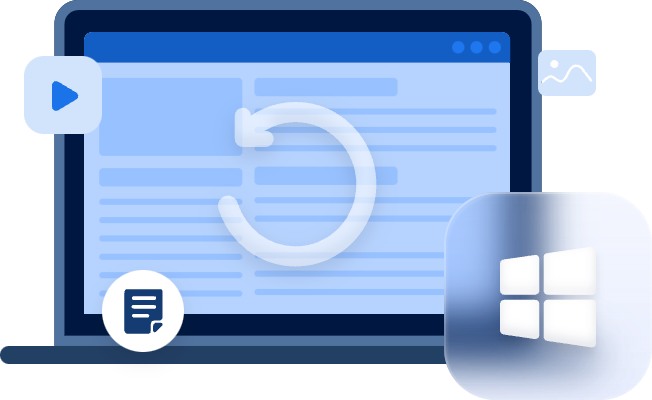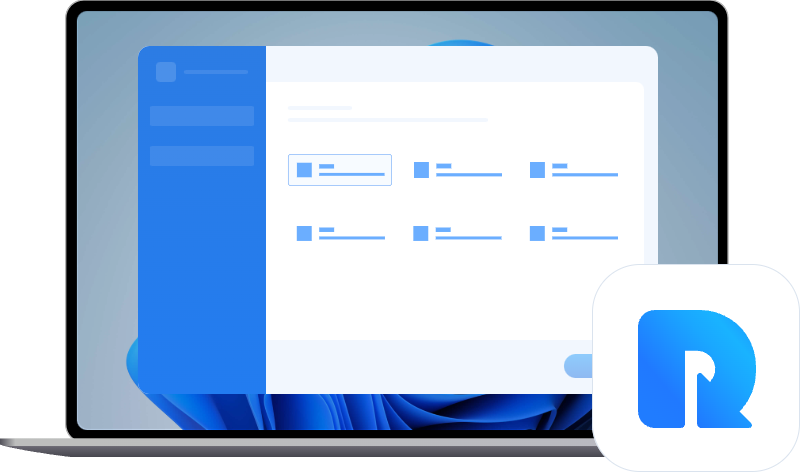Tutorial: How to Get Data from External Hard Drive without Formatting
What to do if you need to recover data from a corrupted or unreadable external hard drive? This post will introduces the most effective way how to get data from external hard drive without formatting.
How can I recover data from a corrupted external hard drive?
“When I connect my external hard drive, a window pops up and asks if I want to format it. I require a few files in it. How can I restore data from an external hard disk that has been corrupted without formatting it?”
-Question from Quora
Normally, your computer will keep asking you to format your external hard drive for the following reasons:
- Accidentally deleted some system files and make external hard drive unreadable.
- Virus infection may cause files and folder to be hidden, or becomes a shortcut, or drive not accessible.
- The external hard drive has bad sectors.
- File table corruption could damage the external hard drive.
- Other unknown reasons.
But don't worry, despite the causes of a corrupted external hard drive, you're able to recover data from it. Let's see how to recover data from inaccessible hard disk.
How to get data from external hard drive without formatting
When facing external hard drive not working problem, the right thing to do is to first get the important data out of it. Because some actions you take to fix the problem may cause permanently data loss. Here in this section, we're going to introduce the most effective data recovery tool MyRecover, which is your best choice on how to get data from external hard drive without formatting.
Before starting to recovering your data, let's see why you need to choose MyRecover:
- Easy-to-operate. Within 3 simple actions, it enables you to recover lost or deleted data from Windows.
- All-inclusive. It applies to various data loss scenarios in Windows, including recovering data from formatted drives, corrupted partitions, after system crashes, virus attacks, etc.
- Widely-compatible. Support for NTFS, FAT32, exFAT, and ReFS in Windows Server and versions 11 through 8 and 7.
- Comprehensive. You may recover deleted or lost data in its original format, including emails, compressed files, texts, images, videos, audios, and more.
Download, install and launch MyRecover on your computer.
Step 1. Hover the mouse over the external hard drive. Click Scan.
Step 2. Then the scanning process will start automatically. You don’t need to wait for the process to complete if you find the files you want to recover. You can also type the name of a specific file/folder in the search box to get the file quickly.
Step 3. Choose the files that you want to recover. Click Recover xx files and choose a destination path to save the restored files.
6 options: External hard drive corrupted and unreadable fixes
After you have successfully recovered your data, you can start to fix your corrupted or unreadable external hard drive. Here are 6 tested external hard drive corrupted and unreadable fixes. Try them one by one.
Fix 1. Change drive letter for the external hard drive
First, see if the external hard drive appears in Disk Management. If it appears, it is most likely associated with the Drive letter. To address this issue, you can assign or change a letter.
Step 1. Right-click on the Start menu > Choose Disk Management. Check whether your external hard drive shows up. If it is, follow the steps below to assign a letter to it. If not, go to the next solution.
Step 2. Type in cmd. in the search bar beside the Start menu > Click Run as administrator.
Step 3. Input the command DISKPART > list volume and press Enter. Then, you can see the list of all available volumes, not only physical drives.
Step 4. Find the letter you want to change and note its number > Enter the Select volume X. Replace the X with the number.
Step 5. Enter the assign=X. Replace the X with the letter you want to assign. Finally, close Command Prompt.
Fix 2. Update or reinstall the external hard drive drivers
When a disk drive is old or outdated, it can cause an external hard drive to become corrupted or unreadable. As a result, you may try to resolve the issue by updating the external hard drive drives.
Step 1. Right-click on the Start menu > Choose Device Manager > Go to Disk Drives and right-click on the external hard drive you plugged in > Choose Update Driver.
Step 2. Click Search automatically for drivers. Your computer will search the internet for the latest version of drivers and download/install them.
Fix 3. Reinstall the USB controllers
USB controllers manage all of your external hard drive devices. Reinstalling USB controllers restores communication between your system and external hard drive devices.
Step 1. Open Device Manager > Expand Universal Serial Bus controllers.
Step 2. Right-click your external hard drive controller and click Uninstall device, click Uninstall again when asked.
Fix 4. Change properties in USB Root Hub
This method is similar to the one above, but instead of uninstalling the drivers here, you will change the USB Root Driver’s properties.
Step 1. Open Device Manager, locate the Universal Serial Bus controllers section and expand it. Then find the USB Root Hub option. Right-click on it and then select the Properties.
Step 2. Switch to the Power Management tab and then uncheck the option Allow the computer to turn off this device to save power. At last, click OK to confirm the change.
Fix 5. Run Hardware and Devices troubleshooter
To try to solve the problem on a software level, we will use Windows troubleshooting capabilities.
Step 1. Right-click Start and select Windows PowerShell > Choose Run as Administrator > Click Yes if prompted.
Step 2. Type in msdt.exe -id DeviceDiagnostic and press Enter.
Step 3. Click Next and follow the on-screen instructions based on the problems that Windows discovers.
Fix 6. Change the USB selective suspend settings
Another possible cause of your external hard drive's failure is the hub driver's automatic USB suspension. In this case, changing the USB selective suspend settings may be beneficial.
Step 1. Right-click on the Start menu > Choose Power Options > Click Additional Power Settings.
Step 2. In the Choose or customize a power plan window, click Change plan setting.
Step 3. On the Edit Plan Settings window, click Change advanced power settings.
Step 4. Find and expand the USB settings section. Expand USB selective suspend setting. And set it as Disabled. After that, click Apply and OK to save the change.
Closing words
This post mainly introduces how to get data from external hard drive without formatting. After recovering data from the not-working external hard drive, you can start to use the 6 tested fixes mentioned in this post to fix it. Hope your problem get successfully fixed.


